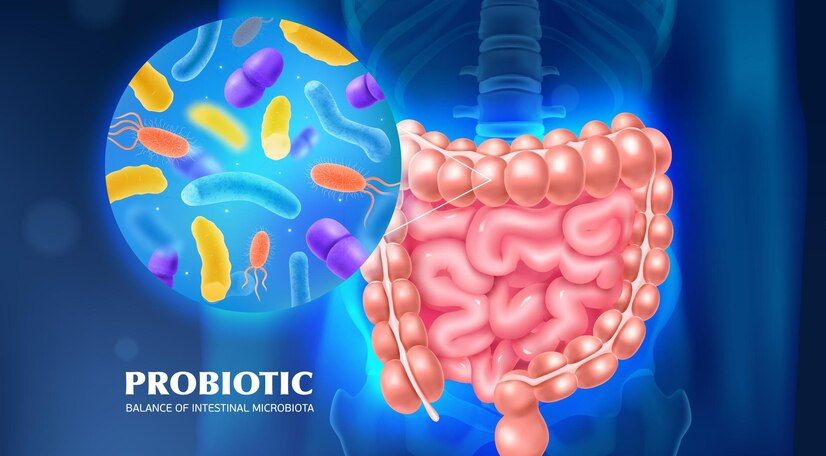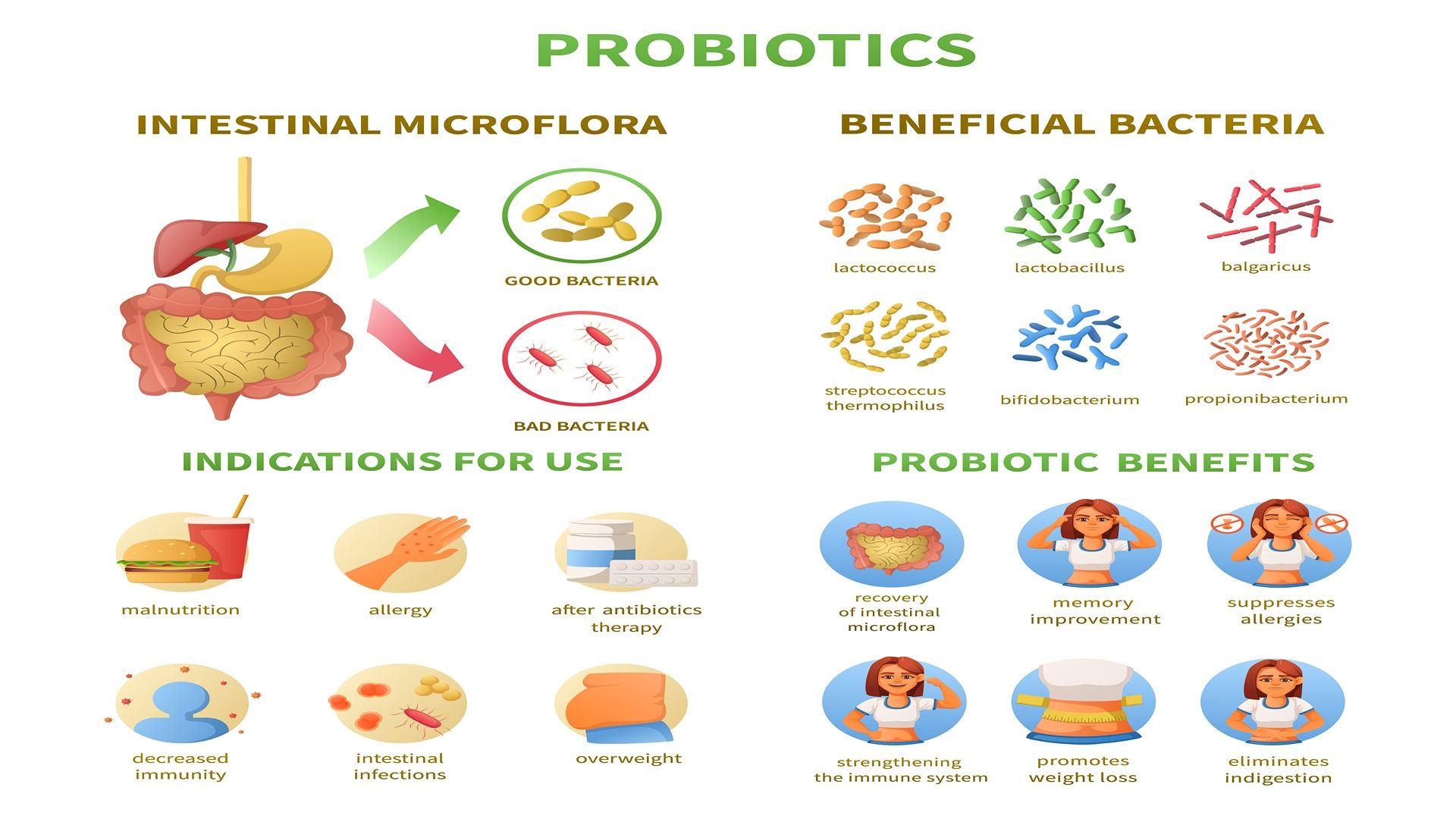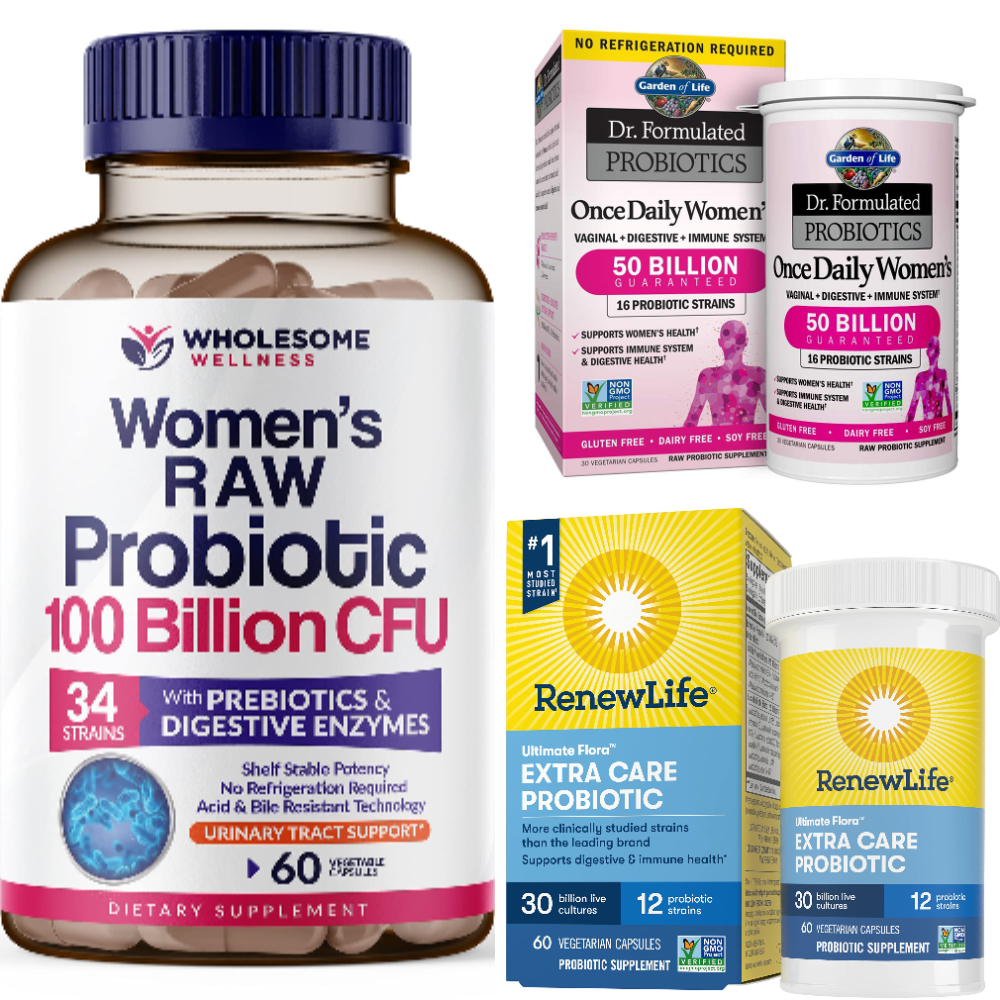The benefits of probiotics are gaining attention in both scientific and wellness communities. These live microorganisms, also known as beneficial bacteria or probiotic bacteria, can confer a multitude of health benefits when consumed in adequate amounts. Probiotics may be found naturally in certain foods or can be taken as dietary supplements. This article explores the various benefits of taking probiotics, delving into the latest scientific evidence and health claims surrounding probiotics.
What are Probiotics?

Probiotics are live microorganisms that, when administered in adequate amounts, confer a health benefit on the host. They are often referred to as 'good bacteria' because they help maintain a healthy balance in your digestive system, promoting digestive health. Probiotic bacteria can be found in a variety of sources, including fermented foods like yogurt and sauerkraut, probiotic-rich foods like kefir and kombucha, and dietary supplements such as probiotic supplements.
Several different types of probiotic strains exist, each offering unique health benefits. Some of the most common strains include Lactobacillus and Bifidobacterium. Each strain has different effects on the body, and certain probiotic strains may be more effective for specific health conditions.
Health Benefits of Probiotics

Digestive Health
One of the most well-known benefits of probiotics is their effect on digestive health. Probiotics help maintain a healthy digestive system by restoring the natural balance of gut bacteria, thereby supporting healthy digestion. They are especially beneficial for people with digestive disorders such as irritable bowel syndrome (IBS), inflammatory bowel disease (IBD), and ulcerative colitis.
Clinical nutrition studies have shown that probiotic supplementation can alleviate mild digestive symptoms associated with IBS, such as bloating and abdominal pain. Furthermore, certain probiotics can help prevent antibiotic-associated diarrhea by restoring the normal bacteria in your digestive tract that may have been disrupted by antibiotic use.
Immune Health
Probiotics also play a crucial role in supporting the immune system. They do this by inhibiting the growth of harmful, disease-causing bacteria, stimulating the body's natural defense mechanisms, and enhancing immune function. Some studies have even found that taking probiotic supplements can reduce the incidence and duration of upper respiratory infections.
Mental Health
Emerging research suggests a link between gut health and mental health, often referred to as the "gut-brain axis." Probiotics may improve mental health disorders such as anxiety and depression by influencing the production of neurotransmitters in the gut. However, more research is needed in this area to fully understand the potential mental health benefits of probiotics.
Incorporating Probiotics Into Your Wellness Routine

Given the numerous health benefits of probiotics, you might be wondering how to incorporate them into your wellness routine. Here are a few ways:
Dietary Changes
Probiotic-rich foods are one of the easiest ways to incorporate probiotics into your diet. Fermented foods like yogurt, kefir, sauerkraut, tempeh, and other fermented foods are excellent sources of naturally occurring probiotics. Consuming these foods regularly can help maintain a healthy balance of gut bacteria, promoting gut health.
Probiotic Supplements
For those with specific dietary restrictions or those who prefer a more concentrated source of probiotics, probiotic supplements are a viable option. These dietary supplements contain live probiotic strains designed to promote digestive health, boost the immune system, and potentially offer other health benefits.
However, it's important to note that not all probiotic supplements are created equal. The effectiveness of a probiotic supplement depends on factors like the type of strain used, the dosage, and the colony-forming units (CFU) count.
Probiotic Use: Things to Consider
While probiotics are generally considered safe for most people, some individuals might experience side effects such as gas, bloating, or an upset stomach. These side effects are usually mild and go away on their own. However, individuals with compromised immune systems or serious illnesses should consult with a healthcare provider before starting probiotic supplementation.
Moreover, while there is promising evidence supporting the health benefits of probiotics, it's important to note that more research is needed in many areas. Some health claims have insufficient evidence, and the beneficial effects of probiotics may vary from person to person.


What are the benefits of taking probiotics?
Taking probiotics, either through dietary supplements or probiotic-rich foods, can offer myriad health benefits. They promote a healthy balance of gut bacteria, which is crucial for maintaining digestive health. Additionally, probiotics can help manage digestive disorders like IBS and IBD, boost immune function, and potentially contribute to weight loss. Certain probiotic strains have also been linked to improved mental health. However, more research is needed to fully understand these benefits and their mechanisms.
Can probiotics help with antibiotic-associated diarrhea?
Yes, one of the well-documented benefits of taking probiotics is their ability to prevent antibiotic-associated diarrhea. Antibiotics can disrupt the normal bacteria in your gut, leading to diarrhea. Probiotic supplementation can help restore the balance of gut bacteria, reducing the risk of diarrhea associated with antibiotic use.
How do probiotics support immune function?
Probiotics support immune function by inhibiting the growth of harmful bacteria in the gut, thereby preventing infections. Certain probiotics may also stimulate the body's natural defenses, enhancing immune function. However, the effectiveness of probiotics in boosting immune function can vary depending on the strain and dosage, so it's best to consult with a healthcare professional before starting any probiotic supplementation.
Are there any side effects of taking probiotics?
While probiotics are generally safe for most people, they can cause mild digestive symptoms like gas, bloating, or upset stomach in some individuals. These symptoms usually subside after a few days or weeks of continuous use. If you have a weakened immune system or are critically ill, it's recommended to consult with a healthcare professional before starting any probiotic regimen.
Can probiotics aid in weight loss?
Emerging research suggests that probiotics may play a role in weight management. Some studies have found that certain strains can help reduce body weight and body mass index (BMI) in individuals with obesity. However, the results are not consistent across all studies, and more research is needed to fully understand the relationship between probiotics and weight loss.

The benefits of probiotics extend far beyond digestive health. From supporting the immune system to potentially improving mental health, these beneficial microbes offer numerous health benefits. Whether through probiotic-rich foods or probiotic supplements, incorporating probiotics into your wellness routine can be a simple yet effective way to promote overall health.
Remember, while probiotics offer many potential benefits, they are not a cure-all. They should be used as part of a balanced diet and healthy lifestyle. Always consult with a healthcare professional before starting any new dietary supplement regimen.












